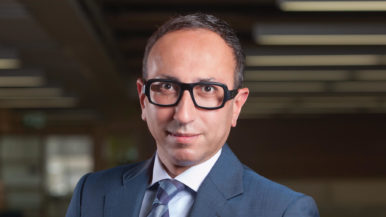What ever happened to Gawker’s Crackstarter money?

Six weeks after Gawker began soliciting donations to procure the infamous Rob Ford crack video, the gossip site was left with more than $200,000 and nothing to buy. The video was gone, vanished into the criminal ether. So, the site moved to Plan B: donating the money to Canadian organizations “that address the fallout from substance abuse.” While Gawker took some heat for the move, the beneficiaries were happy to accept the cash (described rather fancifully to us as “pennies from heaven” by Gawker editor John Cook). In August, Cook quartered the money—$184,782.61 after Indiegogo and Paypal took their cuts—and mailed cheques to four Toronto charities. We caught up with those worthy organizations to find out just what they’ve since done with the money.
The Somali Canadian Association of Etobicoke
Executive director Osman Ali says the $46,000 will go towards hiring a coordinator and assistant coordinator for a project to keep at-risk Somali youth away from gangs and drugs. The project, which is slated to begin in January, still needs to secure funding from the City of Toronto and is currently awaiting the outcome of a Trillium Foundation application. If funded, outreach workers will bring in at-risk Somali youth to the organization three days a week, creating a safe space where kids can get help with their homework, receive peer-to-peer counselling and hear from Somali speakers—ranging from former gang members to doctors and lawyers—about the importance of “stay[ing] away from the ghetto life.” Mayor Ford, we assume, will not be among the invited guests.
Unison Health and Community Services
The Gawker money allowed UHCS to expand its harm-reduction programs and buy several bicycles, which allow its peers to travel greater distances and reach more people. UHCS peers (most of whom are former substance abusers themselves) meet drug users in their neighbourhoods in Northwestern Toronto and provide them with everything from safe equipment to housing referrals. Thanks to the money, “we’re going to a lot more spaces,” said CEO Michelle Joseph.
The South Riverdale Community Health Centre
“We have allocated the Gawker funds for peer workers within our harm reduction program,” said South Riverdale’s Lynne Raskin in an e-mail. Much like UCHS, South Riverdale’s peer workers tries to mitigate the dangers of drug use by providing users with services like clean needles and counselling referrals.
Ontario Regional Addictions Partnership Committee
The ORAPC’s Crackstarter funds will go toward buying equipment and training certified drug and alcohol counsellors to work with Native people in Ontario living with addictions. The organization’s mandate is to assist the Chiefs of Ontario office and the First Nations & Inuit Health Branch “on issues of addictions and holistic approaches to healing.”






Despite the questionable ethics of the Gawker campaign, I hope that the funds provided to the above organizations helps ensure that at least some good comes of this mess.
So we get the crack video for free (once the media are allowed to publish it) AND a number of worthy charities benefit.
Everybody wins!
The most shocking thing here is that Paypal and Indiegogo split over SIXTEEN GRAND for doing virtually nothing (especially Paypal). Figures they wouldn’t be particularly charitable.
How were the ethics questionable? It seems that, but for Gawker, it would have taken ages, if ever, for everyone to learn the truth about RF. The Star only broke their story because they were scooped by Gawker, but Canadian laws prevented the Cdn press from pursuing the story more aggressively.
The money will help keep more vulnerable Torontonians away from ilk like Rob Ford and his buddies, in other words. A good thing…